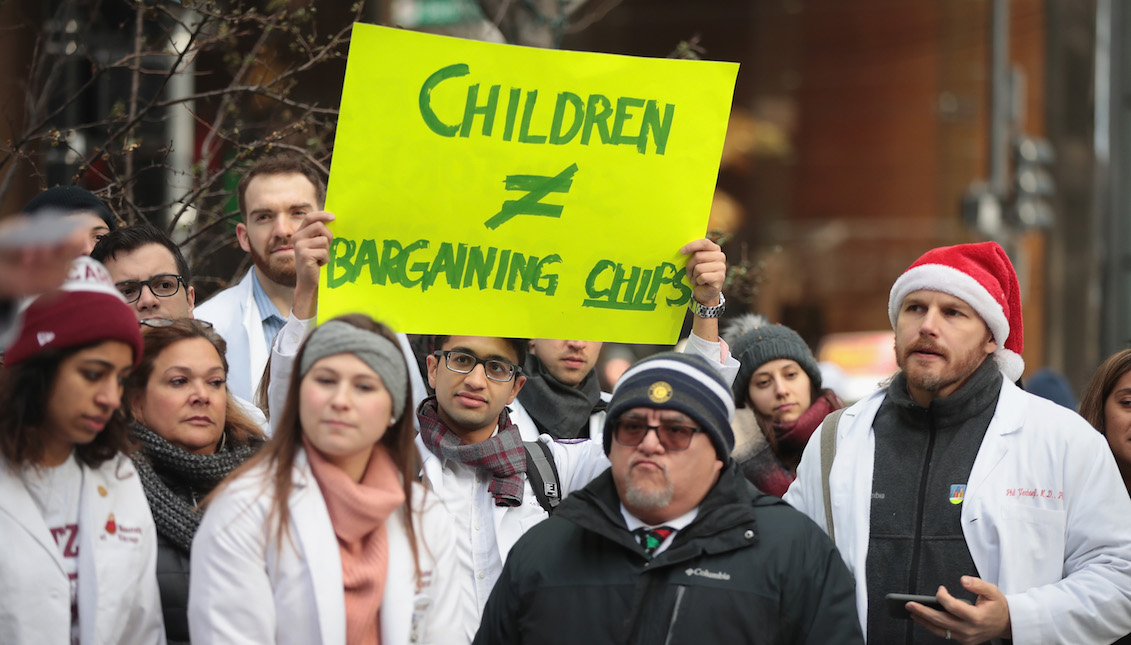
The cost of a Congress at a snail's pace
The US government has managed to reach a temporary agreement to stay open, but the human cost of its incompetence affects the nation on a daily basis.
The month of January was catastrophic for the Donald Trump’s government. Instead of celebrating its anniversary with legislative achievements and with equal development for all, the Congress had to reach a specific agreement to stay open while Democrats and Republicans passed the ball of guilt.
For many, the bone of contention was the future of undocumented youth who arrived in childhood (called Dreamers); for others, the obstacle was the obstructionism of the president and his inability to make a fundamentally political decision.
The government shutdown was just a symptom of a much more convoluted problem and one that continues to cost Americans’ peace of mind on a day-to-day basis.
As reported by the Washington Post, several families have been about to sell their few belongings to continue to pay for the health of their children, as was the case of Varina Mead in Alabama, whose family economy depended on the Children's Health Insurance Program (CHIP) remaining standing after the government’s shutdown.
“Even though no child in the country lost health-care coverage during the months-long CHIP stalemate, the political brinkmanship left a heap of bureaucratic and psychological debris,” explains the Post.
“Its effect portends what could happen with other government programs if Congress continues without a long-term budget plan, passing temporary fix after temporary fix, while social programs continue to hang in the distance.”
For social workers like Jim Carnes of Alabama Arise, this disinterested position of the government only means that they intend to "toy around with your children’s health insurance for a while and see what comes out of it.”
This has also implied the need for state governments to use their reserve funds to keep the programs going, as was the case of Oregon’s governor; or states like Colorado and Virginia, where several parents had to look for random options under the recommendation of their local governments.
The diseases that parents must pay for are not always chronic pictures. The simple case of an asthmatic, allergic or attention deficit child requires a specific family budget that has been threatened by the internal ideological battles of the parties within Congress.
RELATED CONTENT
In the case of Varina Mead, for example, CHIP allowed her to ensure her children for $104 a year. Without the program, their health premium could increase up to $500 per month.
The consequences also include other populations
Much has been said about the future of Dreamers in the hands of Congress, but a temporary solution to the budget plan does not guarantee anything to these young people.
As reported by The Daily Beast, the legislative agreement to temporarily open the government and achieve a solution to the DACA program on February 8 puts many young people at risk, such as Jaqueline Romo (Jalisco, Mexico) of 21 years old, whose protection status expires on February 4.
“Many of us don’t really sleep because we know that things are changing dramatically for the people around us,” Romo told The Daily Beast. “We really don’t know what’s going to come next. It’s like coming back into the shadows—for me, DACA was a way for me to liberate myself.”
Both Romo and Mead (and the entire country) will be looking forward to the speech on the State of the Union that President Trump will deliver this Tuesday, waiting for his positions to be determined so they can have more clarity about the future of their lives.











LEAVE A COMMENT:
Join the discussion! Leave a comment.